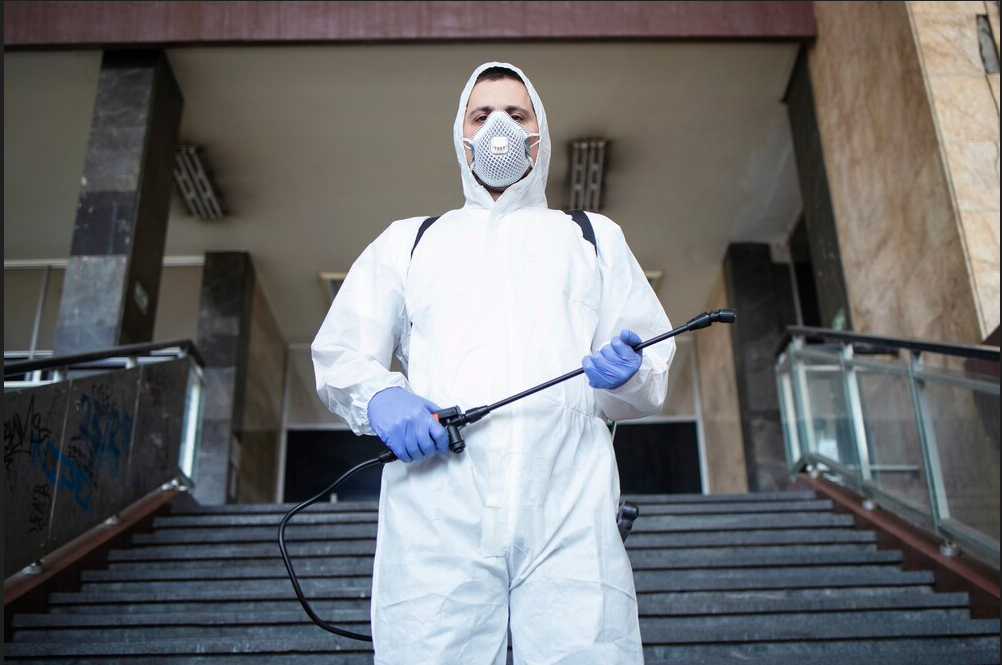Maintaining a Pest-Free Environment - Essential Tips for Commercial Properties
Pest Control
Table of Contents
- Introduction
- The Impact of Pests in Commercial Properties
- Common Pests in Commercial Properties
- Preventive Measures for Commercial Pest Control
- Seasonal Pest Control Tips for Commercial Properties
- DIY Pest Control Solutions
- Pros and Cons of DIY Pest Control in Commercial Properties
- Conclusion
- FAQs
Summary
For businesses, bugs can pose a serious threat! They can harm a business's reputation, cause property damage, and make personnel ill. This article will assist you in maintaining a pest-free workplace. We'll cover seasonal tips. We'll also cover key facts. And, the benefits of working with a good pest control firm.
Even the most pristine company may draw in unwelcome customers! Businesses should avoid pests. Pests can contaminate workers, destroy property, and harm the company's reputation. This handbook serves as a resource. We'll guide local pest control businesses. We'll also give tips for finding a commercial pest control company near me.
Understanding the Impact of Pests in Commercial Properties
Pests can create significant problems in commercial settings -
- Termites and rodents enjoy chewing on objects. This can harm your structure.
- Negative reviews from bugs might damage your reputation. Patrons might see pests in your establishment, especially in eateries or hotels.
- Breaking the Rules has consequences. If you don't follow the rules for keeping businesses free of pests, you may face legal trouble.
Common Pests in Commercial Properties
Different commercial environments attract different pests -
- Watch out for any pest infestations, like ants, bugs, and rodents in your office spaces.
- Cafés and food service foundations are good places for bugs. These bugs include cockroaches, flies, and rodents. They appreciate scraps and extra food.
- Keep an eye out for pest birds and rodents. They can cause issues in warehouses and industrial facilities.
Preventive Measures for Commercial Pest Control
- Regular inspections are key. Make an appointment for them with a trustworthy pest control provider. Experts can spot possible entry points. They see early signs of infestation, so they can respond in time.
- Sanitation and Cleanliness Keep things clean! This is especially important in areas where you prepare and store food.
- Sealing Entry Points Look for gaps, fractures, and other openings on the property. To keep pests out, seal these with the proper materials. Pay close attention to utility openings, windows, and doors.
- Proper Waste Management Put into practice efficient waste management techniques. Make sure dumpsters are placed away from buildings and use sealed containers for recycling and trash.
- Landscaping and Exterior Maintenance Keep up the property's exterior. Clear up any waste or standing water, and trim any trees and bushes that are near the building.
Seasonal Pest Control Tips for Business Properties
Pest activity varies with the seasons. Here’s how to adjust your pest control efforts throughout the year -
- Spring - Pests become more active. Schedule a thorough inspection and implement preventive measures.
- Summer - Pests are at their peak. Maintain cleanliness.
- Fall - Pests seek shelter indoors. Inspect and seal cracks, clean gutters, and ensure proper waste management.
- Winter - Rodents and other pests seek warmth. Keep storage areas clean and use traps if necessary.
DIY Pest Control Solutions
It's normally recommended to hire a professional. But, you can try the following DIY solutions for small insect problems:
- Organic Dissuaders: Some essential oils that repel bugs are peppermint and eucalyptus. To ward off bugs, distribute them into the atmosphere.
- Baits and traps: These are useful tools for catching and eliminating insects and rodents.
- Low-Level Pesticides: You can attempt over-the-counter pesticides if your infestation is modest. Make sure you pay close attention to the safety guidelines!
Pros and Cons of DIY Pest Control in Commercial Properties
Pros | Cons |
Lower initial cost | May not be effective for long-term control |
Can be used for minor infestations | |
Readily available |
Conclusion
Commercial buildings must have a pest-free environment. This is essential for the health of employees and customers. Pests can harm property, disseminate illness, and reflect poorly on your company. This guide gives advice on keeping your business pest-free. This includes good cleanliness. It means using natural repellents for minor issues. And, working with a licensed commercial pest control company. They provide tailored treatments, routine inspections, and focused programmes. Preventive pest treatment is key. It keeps your workplace healthy for your staff and clients.
FAQs
Which kind of insects are most commonly found in office buildings?
Common pests in businesses include flies in food service. They also include cockroaches and rats in all locations. And they include insects and rodents in warehouses.
Q2: Which pest management techniques work best in businesses?
The most important preventive actions include four things. These are: frequent inspections. They have strict cleanliness rules. Access sites are sealed. Waste management is effective.
Q3: What is the process for selecting a business pest control firm?
To choose trustworthy pest control services, look for experience. Look for customized plans, appropriate certifications, favorable reviews, and close proximity.

